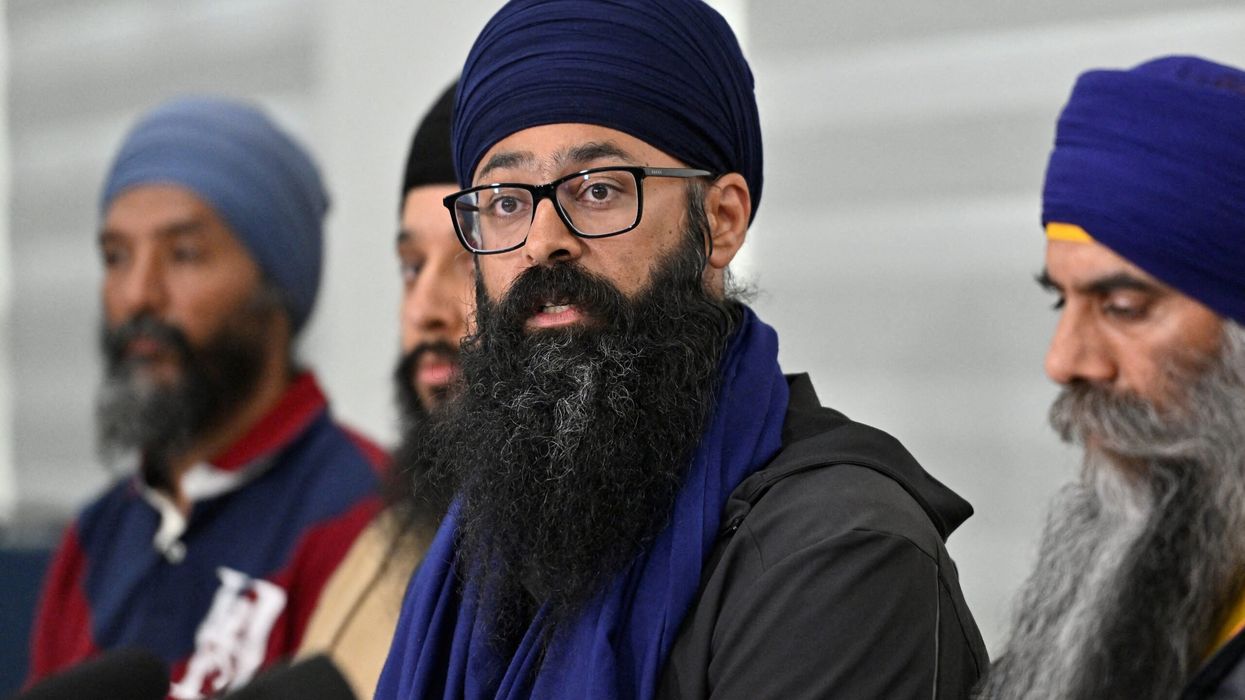SINCE July 2022, Moninder Singh, a spokesperson for a Sikh advocacy group in British Columbia, Canada, has received two visits from police at his home in Surrey, a suburb of Vancouver.
Each time, Singh says, they warned him of an imminent assassination threat, though they didn’t specify where it came from. These warnings forced the 43-year-old Canadian to leave his home for extended periods, staying away from his wife and two children, aged 15 and 11.
"India has gotten away with so much over the years," Singh said, referencing Indian prime minister Narendra Modi. "They feel like they're so powerful that no one will hold them accountable. And they've probably been correct over the past decade."
Singh’s case highlights the fears faced by some members of Canada’s Sikh community, the largest outside India, as tensions between India and Canada continue to rise.
The Royal Canadian Mounted Police (RCMP) recently stated it has communicated over a dozen threats to individuals, like Singh, who advocate for a separate Sikh homeland in India.
Canada's Sikh community has been in the international spotlight since prime minister Justin Trudeau accused India’s government of being involved in the June 2023 killing of Hardeep Singh Nijjar, a Sikh separatist leader in Canada and a friend of Moninder Singh. Nijjar was shot dead in Surrey.
India denies involvement in Nijjar’s death, while also accusing Canada of harbouring Sikh separatists.
On Friday, over 30 people protested outside the Indian consulate in Toronto. Kuljeet Singh, a spokesperson for Sikhs for Justice, urged Canada to shut down the country’s Indian consulates, stating, "We believe India remains a threat to Canada's sovereignty, freedom of speech, and freedom of expression."
Earlier this week, Canada expelled six Indian diplomats, alleging their involvement in Nijjar's murder and accusing them of broader efforts to target Indian dissidents in Canada. India responded by expelling six Canadian diplomats, calling the allegations “preposterous” and “politically motivated.”
Trudeau said on Monday that Canada had “clear and compelling evidence” that Indian government agents had engaged in activities threatening public safety.
RCMP spokesperson Camille Boily-Lavoie said law enforcement agencies have a duty to inform individuals if they are subject to a “clear, serious, and imminent threat of death or serious harm.” She declined to provide more details due to privacy concerns.
After each warning, Singh said British Columbia's Ministry of Child and Family Development gave him the option to either leave his home or have his children relocated. He chose to leave. A ministry spokesperson declined to comment, citing an ongoing election.
Singh explained that the police provide limited information about the threats, saying, "They don't tell you who, where, or what to do. They just let you know to take precautions."
Balpreet Singh, legal counsel for the World Sikh Organization of Canada, noted an increase in violence targeting Sikh activists, including incidents of extortion.
In another case, police came to the home of activist Inderjeet Singh Gosal in Brampton, Ontario, at midnight in August. Gosal wasn’t home, but the police spoke to his wife and later told him over the phone that his life was under threat.
"My family worries," Gosal said, "But I know what I signed up for."
Singh welcomed the recent actions taken by the Canadian government, saying it has helped restore some confidence in the Sikh community that these threats won't go unanswered.
However, Singh remains cautious. He no longer takes his children to school or attends public events with them. "You don’t want to be around people in general," he said.
The community is deeply affected by these threats, he said, changing how people interact. “You're always looking over your shoulder, wondering if someone is coming toward you."
(Reuters)




